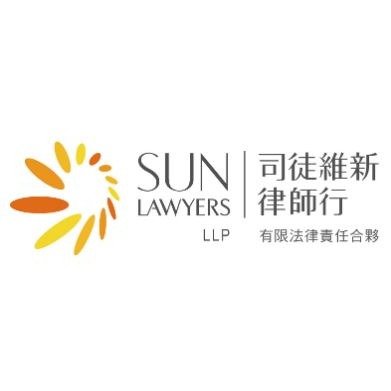Best Employer Lawyers in Hong Kong
Share your needs with us, get contacted by law firms.
Free. Takes 2 min.
Or refine your search by selecting a city:
List of the best lawyers in Hong Kong
About Employer Law in Hong Kong
Employer law in Hong Kong is a complex field that governs the relationship between employers and employees. Comprising a range of statutes, regulations, and judicial precedents, employer law sets out the obligations and rights of both parties in the employment relationship. This field covers various issues, including employment contracts, wages, working hours, discrimination, and employee benefits. With its unique blend of common law traditions and statutory regulations, understanding employer law in Hong Kong is essential for both employers and employees to ensure compliance and fair treatment in the workplace.
Why You May Need a Lawyer
There are several scenarios where seeking legal advice in employer-related matters can be beneficial:
- Drafting or reviewing employment contracts to ensure they meet legal requirements and are fair to both parties.
- Addressing disputes related to wrongful termination, unfair dismissal, or redundancy issues.
- Handling cases of workplace discrimination or harassment under the Hong Kong Equal Opportunities Ordinance.
- Navigating the complexities of employee compensation claims.
- Ensuring compliance with occupational safety and health regulations.
- Advising on matters related to employee benefits, such as pensions and leave entitlements.
- Providing guidance on restructuring or downsizing operations in accordance with Hong Kong laws.
- Dealing with union relations and bargaining under the Employment Ordinance.
Local Laws Overview
Hong Kong’s employer laws are primarily governed by the Employment Ordinance, which lays down the basic rights and duties of employers and employees. Key aspects include:
- Employment Contracts: Both written and oral contracts are recognized, but written agreements are strongly recommended.
- Wages and Salaries: The Employment Ordinance contains provisions about the minimum wage, payment periods, and wage deductions.
- Working Hours: While there is no statutory limit on working hours, the ordinance stipulates rest days and mandatory holidays.
- Termination of Employment: Rules concerning termination, notice periods, and redundancy payments are outlined in the ordinance.
- Protection Against Discrimination: Employers must comply with anti-discrimination laws based on sex, family status, disability, and race.
- Employee Compensation: Employees are entitled to compensation for work-related injuries or diseases under the Employees’ Compensation Ordinance.
Frequently Asked Questions
What is the minimum wage in Hong Kong?
The minimum wage in Hong Kong is determined by the Minimum Wage Ordinance and is subject to review every two years. As of recent updates, it stands at HKD 37.5 per hour.
Are employment contracts required to be in writing?
While written employment contracts are not mandatory, they are strongly recommended to avoid disputes and ensure clarity of terms agreed upon.
What are the statutory rest days for employees?
Employees are entitled to at least one rest day in every period of seven days, which can be negotiated between the employer and employee.
How is redundancy compensation calculated?
Redundancy payments are calculated based on the employee's years of service and last month's wages or the average monthly wages in the last 12 months, whichever is higher.
What protections exist against workplace discrimination?
Several ordinances, such as the Sex Discrimination Ordinance and the Disability Discrimination Ordinance, protect employees from discrimination based on various grounds.
Can an employer terminate an employee without notice?
Termination without notice is possible only under specific conditions, such as serious misconduct, and must comply with the terms outlined in the employment contract.
What is included in employee benefits?
Typical employee benefits include annual leave, maternity leave, paternity leave, and sickness allowance, all covered under the Employment Ordinance.
How are work-related injuries compensated?
Employees can claim compensation for injuries or occupational diseases sustained in the course of employment under the Employees’ Compensation Ordinance.
Are there laws regulating working hours and overtime?
While there is no statutory cap on working hours, the Employment Ordinance covers provisions for rest days and overtime pay, commonly negotiated in employment contracts.
What is the process for resolving employer-employee disputes?
Disputes are often resolved through negotiation, mediation, or arbitration. Legal recourse is available through the Labour Tribunal if these methods fail.
Additional Resources
For those seeking further assistance or information, the following resources can be invaluable:
- The Labour Department - Offers comprehensive guidance on employment standards and workers' rights.
- The Equal Opportunities Commission - Provides resources on combating discrimination and promoting equality in the workplace.
- The Labour Tribunal - Handles disputes between employers and employees regarding various employment matters.
- The Occupational Safety and Health Council - Focuses on standards and training to ensure workplace safety.
Next Steps
If you require legal assistance regarding employer issues in Hong Kong, consider the following steps:
- Identify the specific issues or concerns you need advice on.
- Gather all relevant documents related to your employment issue, such as contracts, correspondence, and records.
- Consult with a qualified employment lawyer who specializes in Hong Kong employment law to understand your rights and options.
- Consider seeking preliminary advice from non-profit organizations or government bodies if cost is a concern.
- Prepare questions and note down your objectives before your consultation with a lawyer to make efficient use of the consultation time.
Lawzana helps you find the best lawyers and law firms in Hong Kong through a curated and pre-screened list of qualified legal professionals. Our platform offers rankings and detailed profiles of attorneys and law firms, allowing you to compare based on practice areas, including Employer, experience, and client feedback.
Each profile includes a description of the firm's areas of practice, client reviews, team members and partners, year of establishment, spoken languages, office locations, contact information, social media presence, and any published articles or resources. Most firms on our platform speak English and are experienced in both local and international legal matters.
Get a quote from top-rated law firms in Hong Kong — quickly, securely, and without unnecessary hassle.
Disclaimer:
The information provided on this page is for general informational purposes only and does not constitute legal advice. While we strive to ensure the accuracy and relevance of the content, legal information may change over time, and interpretations of the law can vary. You should always consult with a qualified legal professional for advice specific to your situation.
We disclaim all liability for actions taken or not taken based on the content of this page. If you believe any information is incorrect or outdated, please contact us, and we will review and update it where appropriate.
Browse employer law firms by city in Hong Kong
Refine your search by selecting a city.

















